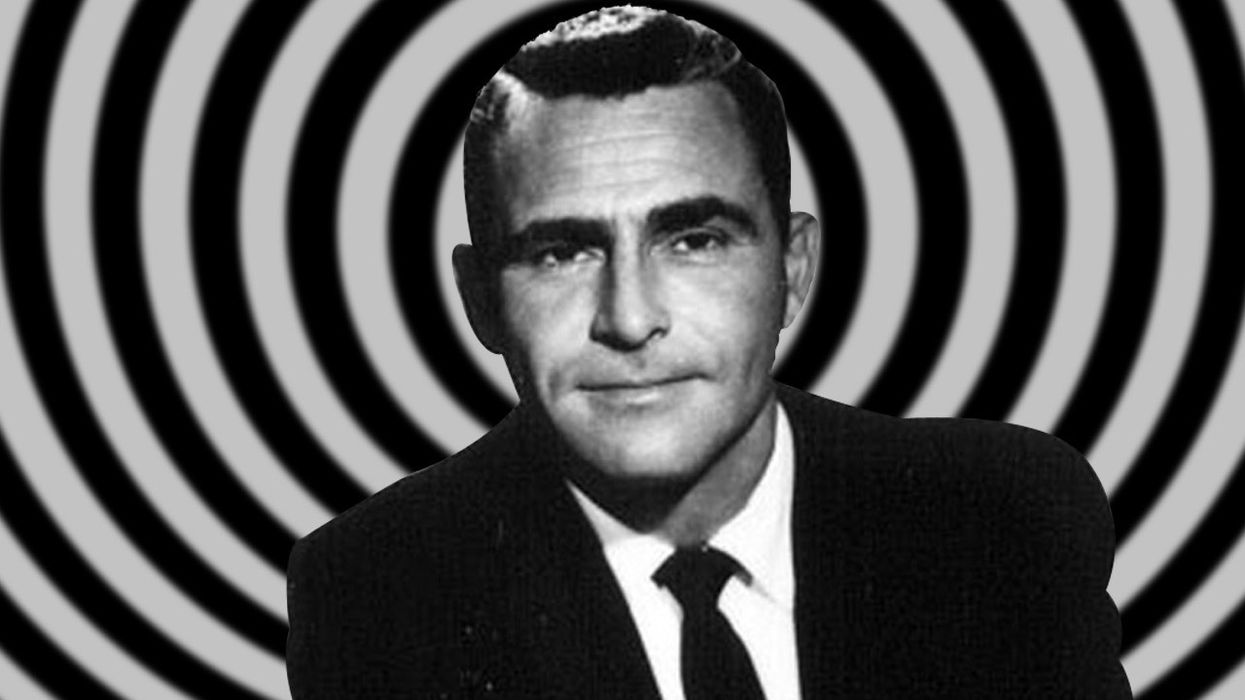Watch: What 'The Twilight Zone' and Martin Scorsese Have in Common
How does the incomparable The Twilight Zone relate to Scorsese's 'universal cinematic language'?

Rod Serling's The Twilight Zone has been consistently praised, and in 2013, the WGA voted it as the 3rd best Written TV Series Ever. This video from Jack's Movie Reviews features none other than Martin Scorsese, and focuses on how the show used what he calls "universal cinematic language" to make its storytelling so real and visceral. Watch the video below and then read on for three storytelling lessons from one of the most interesting and original TV series ever.
A big part of the point here is taken from an address given by Martin Scorsese (shown in the video) in 2013, when he said, "to a large extent the art of cinema and its development has been linked to us, and we have no choice but to treat all these moving images coming at us as a language." That is, and I do not presume to second-guess Mr. Scorsese, but I think what he's getting at here is that the language/grammar of cinema exists in its present form because we (that is, human beings) are the ones watching, and the language has been created to appeal to—and manipulate— our perceptions of the world. The Twilight Zone was expert at using this language to thrill audiences. Here are some keys to its success:
1. Creating Subjectivity
Jack starts by asking, "How do you tell a first-person story with a camera?" In a book, it all has to do with what pronoun (I, he, she) is being used, but "in film, that doesn't quite correlate."
While some films have attempted to be shot from a first-person perspective, this can be a little bit off-putting (imagine a three-minute conversation from one point-of-view). In the pilot episode of The Twilight Zone, "Where is Everybody?" we open up with a wide shot of a man looking around and then we cut to what he is seeing and—just like that—we are placed in the same position as our protagonist.
Thus, we are as an audience interested in his success as he makes his way around the deserted town. As he searches for answers, so do we. As Jack puts it, "we are in the same position as him. It's the same philosophy that is used in a lot of detective stories. A big part of why we relate to detectives is that we are on the same quest that they are." But, it's not an exact subjective experience, as "the camera seems to have a mind of its own," always moving around him and observing him, and that's because it's setting up the big revelation, which is that [SPOILER] we're actually seeing the story from the perspective of onlookers.
2. Rule-breaking as Revelation
Just as the show is expert at creating subjectivity, it's also expert when it comes to its revelations. In the episode "Eye of the Beholder," we have been following Maxine, a heavily bandaged woman, from the first scene, when we see her in medium shot, lying in a hospital bed with her face obscured. Now, as Jack puts it, and illustrates, many of the most emotional shots in all of cinema have taken place in close-up, and this is because we react the most to the human face, and "when you break one of the rules that everybody is familiar with (because of the universal cinematic language) it tells the audience that something is wrong."
3. Suspense by Withholding
Furthermore, while it might make some sense why we haven't seen Maxine's face, there is no good reason why, throughout the episode, we have not seen the faces of her doctors. Jack quotes Quentin Tarantino, in an interview with Charlie Rose, where the director said that "it's like the suspense is a rubber band and I'm just stretching it....as long as that rubber band can stretch, the longer the scene can hold, the more suspenseful it is."
"The longer the scene can hold, the more suspenseful it is" -Quentin Tarantino
In this episode, "the camera carefully moves around the face's of Maxine's doctors, so that they're always blocked out," and, as per Tarantino, "the longer it takes before we see anything, the more suspense is built." As an audience, we know that something is going to happen, and while it would be pretty easy for us to infer the nature of what it's going to be, the key thing is that we don't know how or why it's going to be revealed, and that's the essence of what works here.
Source: Jack's Movie Reviews

 'Anora'Neon
'Anora'Neon Annie Johnson Kevin Scanlon
Annie Johnson Kevin Scanlon









